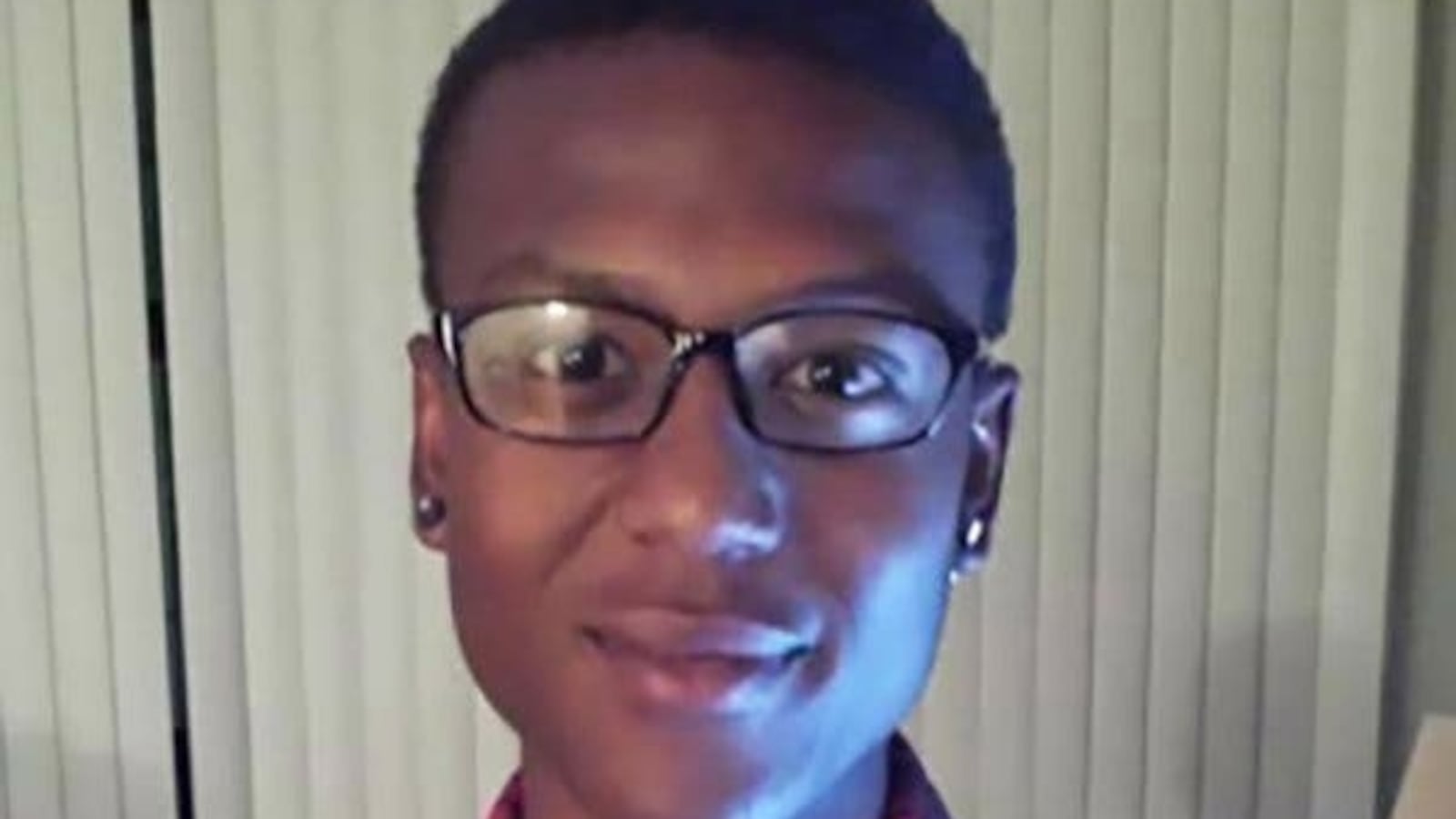A grand jury has returned a 32-count indictment against two Aurora police officers, one ex-officer and two local paramedics in the death of Elijah McClain, Colorado Attorney General Phil Weiser said on Wednesday.
All five defendants—Aurora Police officers Randy Roedema and Nathan Woodyard, former officer Jason Rosenblatt, and fire paramedics Jeremy Cooper and Lt. Peter Cichuniec—face one count of manslaughter and criminally negligent homicide, according to the unsealed indictment.
The officers had been trained and knew that the hold they placed McClain in “posed dangers and should never be administered more than once,” the indictment said.
Roedema, the senior patrol officer at the scene, and Rosenblatt, also face second-degree assault charges for causing serious bodily injury to McClain.
Cooper and Cichuniec were also charged with second degree assault for causing bodily injury, by means of a deadly weapon, after they used ketamine to sedate McClain without making any effort to check his vital signs or consulting with McClain, the indictment said.
The paramedics “deviated from the standard protocols” and failed to properly assess McClain when they injected him with an anesthetic dose of the drug, according to the indictment.
Prosecutors said that a forensic pathologist found that McClain had died from “acute Ketamine administration during violent subdual and restraint by law enforcement and emergency response personnel, and the manner of death was homicide.”
“Nothing will bring back my son, but I am thankful that his killers will finally be held accountable,” McClain’s dad, LaWayne Mosley, said in a statement.
McClain, 23, was walking home from a convenience store on Aug. 24, 2019, after buying ice tea for his brother, when police tackled him to the ground, handcuffed him, and put in carotid holds that restricted blood flow to his brain.
Paramedics sedated McClain with a dosage of ketamine “that was appropriate for a patient who weighed 77 pounds more than Mr. McClain,” the indictment said. McClain had no pulse and was not breathing shortly after he was placed in an ambulance. He was declared brain dead and removed from life support at a hospital days later.
The officers stopped McClain after a 911 call about a “sketchy” individual. McClain was wearing a ski mask and listening to music, and did not immediately yield to officers.
His family later said he often wore a ski mask because he had anemia and would sometimes get cold. They described McClain to the Colorado Sentinel as a quiet, gentle soul who worked as a massage therapist and often put on violin concerts at animal shelters.
McClain stopped after repeated commands from the officers, who said they had the right to stop him for looking suspicious. They then forced him to the ground.
In body-cam footage, McClain—vomiting and pleading—can be heard saying during the assault that lasted nearly 18 minutes: “I was just going home. I’m an introvert and I’m different... I’m so sorry. I have no gun. I don’t do that stuff. I don’t do any fighting. Why were you attacking me? I don’t do guns. I don’t even kill flies. I don’t eat meat.”
The indictment is the first time any cops or paramedics involved in McClain’s death have faced legal consequences.
“For far too long, racist and brutal police across this country have acted as though the law does not apply to them,” a lawyer for McClain’s family, Mari Newman, said in a statement. “This indictment serves as a powerful reminder to all members of law enforcement that no one is above the law.”
Shortly after McClain’s death, Adams County District Attorney Dave Young cleared the officers of criminal wrongdoing. Then-Aurora police chief Nick Metz also said that the officers had not violated department policies. (Rosenblatt was later fired for texting “ha ha” in response to a photo of colleagues jokingly reenacting a chokehold at the spot where McClain was arrested.)
But, in February, city officials released a 157-page report on the investigation into McClain’s death that detailed a series of errors made by the officers who stopped McClain, the police investigators who sought to cover their tracks, and the paramedics who responded to the scene.
The officers had no legal justification for stopping McClain on the basis of the 911 call and also lacked constitutional basis for frisking McClain, forcing him to the ground, and using multiple carotid holds on him, the report found.
The report prompted Gov. Jared Polis to appoint Weiser to oversee a new investigation into McClain’s death and determine whether anyone should face criminal charges. McClain’s family also filed a civil suit against the city.
The Aurora Police Association’s board of directors stood by the officers, claiming in a Wednesday statement that McClain “died due to a combination of exertion due to his decision to violently resist arrest and a pre-existing heart condition.”
“The hysterical overreaction to this case has severely damaged the police department,” the statement said.
A separate Attorney General’s Office probe is looking at whether the Aurora police and fire departments’ practices and policies violate residents’ civil rights.
“Our goal is to seek justice for Elijah McClain, for his family and friends and for our state,” Weiser said at a news conference announcing the charges. “In so doing, we advance the rule of law and the commitment that everyone is accountable and equal under the law.”







